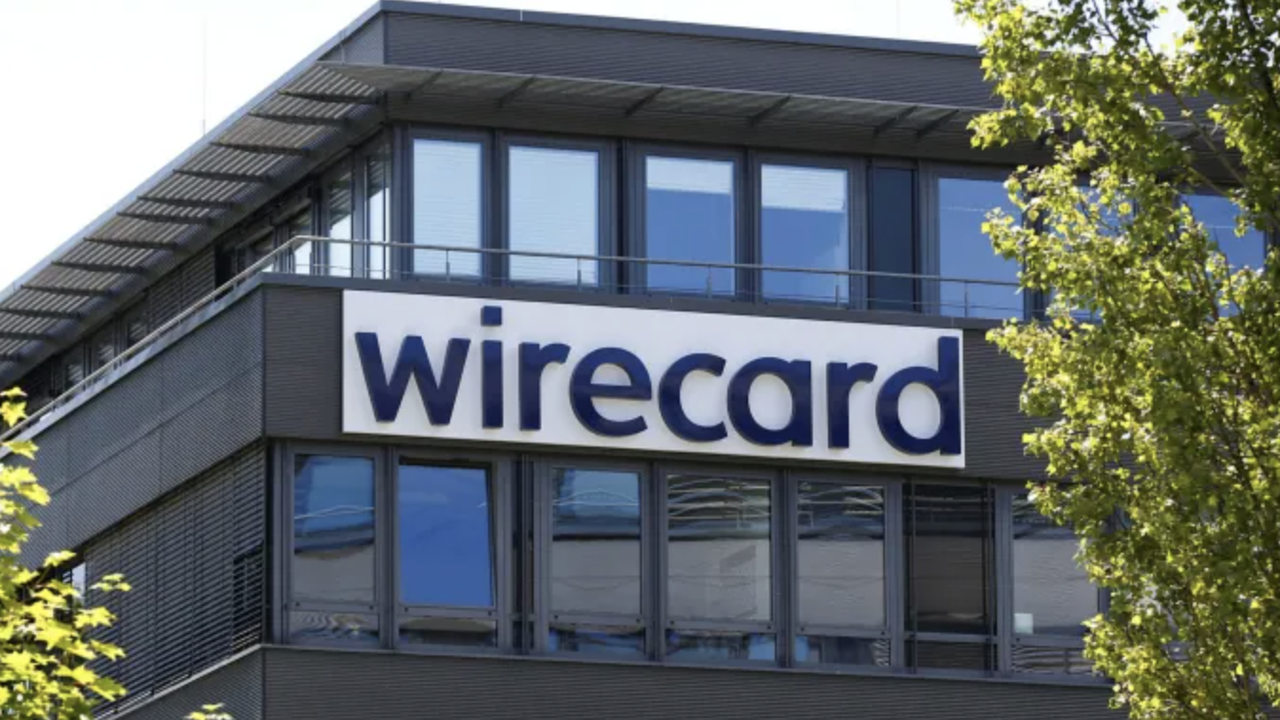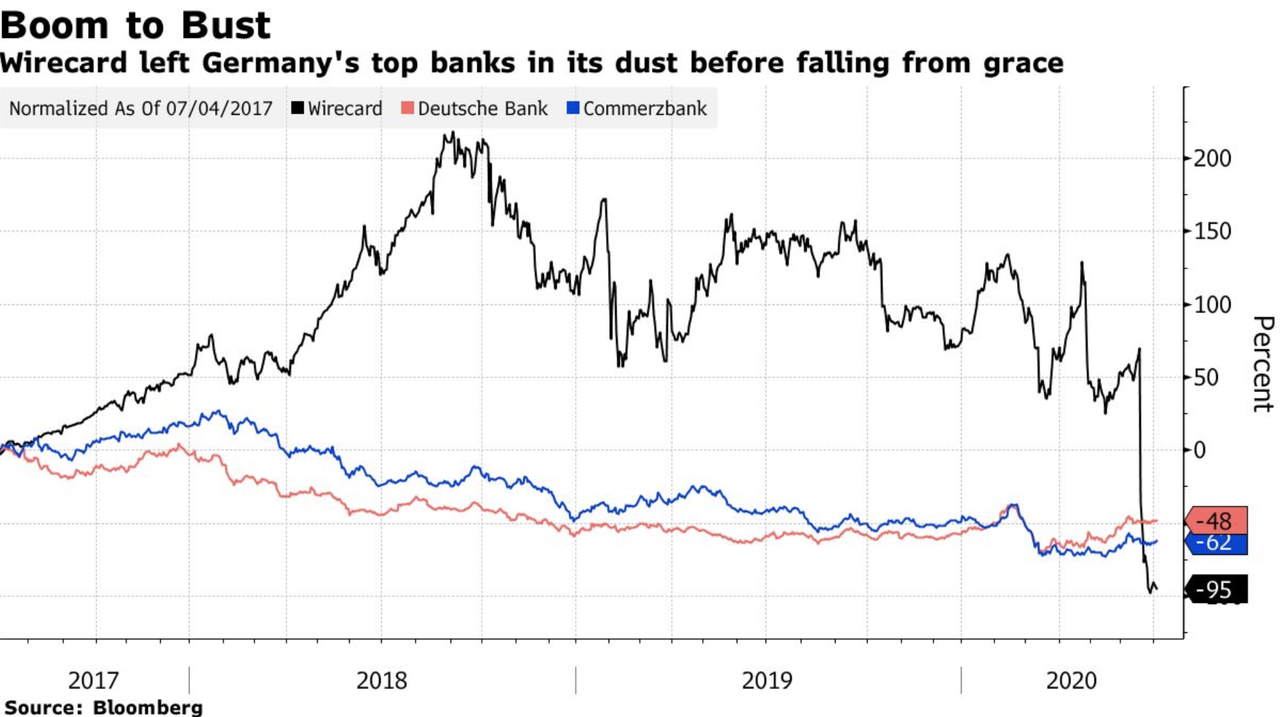By Tyler Durden
More reporting on the Wirecard situation has emerged over the long weekend in the US, and none of it is flattering.
As a court-appointed administrator begins the process of managing what’s left of Wirecard through the insolvency process, while doing the best the government can compensate shareholders who were deceived by the onetime fintech darling, WSJ reports that the (now former) COO, Jan Marsalek, has disappeared, with many suspecting that the longtime COO – who probably knows where many of the bodies are buried – has gone on the run as German prosecutors seek to question hi,
His motives aren’t too difficult to discern: With CEO Markus Braun out on bail, it’s likely that Marsalek, who’s suspected of playing a critical role in maintaining the company’s complex shell game with the “Asian third-parties” which helped Wirecard conceal its accounting fraud, even from the auditors who apparently never bothered to actually check these accounts.
When the FT reported last year that most of Wirecard’s actual profits were generated by its opaque Asian businesses, the company denied it, with CEO Markus Braun insisting this was “simply not true”. But once again, it appears the FT reporters were spot-on, as an appendix to KPMG’s damning third-party report obtained exclusively by the FT purports to show.
Per the FT, Wirecard’s core business in Europe and the Americas has been lossmaking for years, which means the only Wirecard subsidiaries worth any money are those tied to the company’s most opaque operations, which might make it more difficult to sell the business lines that aren’t impacted by the fraud, and which still have value (theoretically, at least).

Some background: German payments group collapsed into insolvency last month after revealing that €1.9 billion ($2.1 billion) in cash in its accounts actually “didn’t exist”, exposing the “highly profitable” payments company and lender as a fraud.
According to its EY-audited financial reports, between 2016 and 2018 Wirecard generated operating margins of around 22% and almost doubled annual earnings before interest and taxes to €439 million. However, these profits appear to have existed largely on paper, according to the section of the KMPG report (which has already been made public, though the appendix has not) obtained by the FT. The businesses in question are WC’s payments business in Europe and Asia, and its credit card business in Europe and North America. Not only were these businesses lossmaking, but they’ve become increasingly money-losing in recent years.
During this time, Wirecard contended that its opaque Asian business more than offset these losses. But now it appears that 2/3rds of that business’s profits were completely imaginary. The company’s activities outside Asia haven’t actually generated a profit since 2016.
Wirecard’s court-appointed administrator Michael Jaffé is facing a difficult task as he tries to manage the sale of a few profitable business lines in WC’s banking and payments businesses. As more damning information comes to light, a sale of Wirecard’s subsidiaries needs to happen within weeks or they will lose any remaining value. “Wirecard has very few physical assets, and the risk is that many of its clients will switch to rivals soon,” said an anonymous source quoted by the FT. That source also claimed that the legal claims against Wirecard’s former management and its auditor (EY) said one of the people, adding that Wirecard’s legal claims against its former management and its accountant may be more valuable than its remaining operating business.
Several buyers have expressed interest, including – most notably – Deutsche Bank, which maintains it is best positioned to integrate Wirecard’s legit businesses into its existing operations.
In an extraordinary example of how banks can sometimes abuse the “Chinese Wall” that’s supposed to exist between the stock analysts and the investment bankers, Deutsche Bank, over the course of a year, hedged all of its loan exposure (some $300 million in loans to both Wirecard and its (now former) chief executive, Markus Braun) to Wirecard. Meanwhile, its independent investment-management unit (DWS) piled into Wirecard’s shares, and DB’s analysts issued at least one “buy” rating on the DAX component’s shares.
As Wirecard’s shares eclipsed those of Germany financial champions like Deutsche Bank and Commerzbank (which WDI would later replace as a component of the DAX), the financial establishment in the country went from treating Wirecard like a pariah or a novelty (the company got its start providing payments infrastructure to adult entertainment sites and other shadier corners of the Internet) to a true national champion.
One of DB’s most egregious decisions involving Wirecard was hiring Andreas Loetscher, the Ernst & Young partner who oversaw several audits of Wirecard’s results, as chief accounting officer. Loetscher is now under investigation by German authorities.

Source: BBG
When the FT, published its first story alleging certain ‘accounting irregularities’ at Wirecard (the first in a series led by intrepid investigative reporter Dan McCrum) DB’s investment bankers immediately started worrying about the bank’s exposure should the company’s shares (against which all of DB’s loans were collateralized).
At Deutsche Bank, some executives grew alarmed, including Garth Ritchie, the head of investment banking at the time. Ritchie’s skepticism had arisen in part from conversations with hedge-fund clients that had conducted their own research into the firm’s workings, and who had been betting against the stock. His unit oversaw a 150 million-euro loan to Braun that was secured by Wirecard shares, so if the shares fell, the bank could lose a lot of money.
Risk managers led by Stuart Lewis, Deutsche Bank’s chief risk officer, were also worried. The lender had agreed to provide around 120 million euros to Wirecard as part of that firm’s revolving credit facility, but the payments company was expanding very rapidly and Deutsche Bank didn’t fully understand all the factors at play. They reduced their exposure and increased their hedge in the wake of the FT story.
When Wirecard approached DB about a merger last spring, the bank courteously declined. As its bankers sold off chunks of its Wirecard exposure, they made sure to do so quietly, so as not to spark a market panic that the biggest bank in Germany was getting cold feet on Wirecard. When SoftBank stepped up and invested €900 million in a complicated capital injection, DB’s analysts upped their rating on Wirecard stock to buy from hold and projected 20% upside.
Later that year, when SoftBank got cold feet and started looking for a way out of its partnership with Wirecard, DB declined to help underwrite a convertible bond sold by Wirecard as part of the deal last spring. And while the bank did underwrite a €500 million bond deal for Wirecard in September, the entire inventory of debt was sold on to investors. The bank was more than happy to underwrite this debt and sell it on to yield-starve institutions despite having declined to underwrite more complicated debt security for fear of getting stuck with too much of the product on its books, according to BBG.
When Wirecard shares sold off last fall, DWS doubled down. Yet, by the time Wirecard spiraled into insolvency in the spring, a margin loan to CEO Braun was off the bank’s books. But DB apparently helped Braun find another lender in the form of German bank Oldenburgische Landesbank, a small regional lender backed by private equity investors including Apollo Global Management.
Although DB is among a group of 15 lenders owed some €1.6 billion by Wirecard, its actual exposure is closer to €70 million, assuming the credit facility was 90% drawn down. Commerzbank, ABN Amro, and ING are each owed twice as much.
And here’s the kicker: With Wirecard headed for insolvency, Deutsche Bank is now considering buying Wirecard’s banking operations, which have been ring-fenced from the rest of the company by BaFin. After all that, DB could walk away with the only profitable business in the entire toxic company at a substantial discount. And with the explicit help of BaFin, the German securities regulator that actively protected Wirecard by attacking the FT and its reporters and even going so far as to bar short-selling in Wirecard shares. Most analysts believe that the company’s lending business will be worthless soon if clients go elsewhere. That should set the stage for DB to acquire the business at a substantial discount.
In summary, DB basically did more than any other member of the German establishment (perhaps aside from BaFin) to legitimize Wirecard. Now, DB is set to become one of the biggest beneficiaries of the company’s historic collapse.
StevieRay Hansen
Editor, BanksterCrime
God often uses men who are not of the best moral character. Pharaoh, Nebuchadnezzar, Cyrus, Herod, and Trump (amongst others), to accomplish His will in events He orchestrates during human history. We either trust the sovereignty of God or we don’t. Nothing happens apart from Him…
The best index to a person’s character is how he treats people who can’t do him any good, and how he treats people who can’t fight back…
The Birth Pains Are Growing Stronger….
One of the signs of ruling class collapse is when they can no longer enforce the rules that maintain them as a ruling class. When the Romans started making exceptions to republican governance, it was a matter of time before someone simply decided the rules no longer applied to them. Perhaps the robot historians will consider Obama our Marius or Sulla. Maybe that person is in the near future. Either way, the rule of law is over and what comes next is the rule of men.
“Don’t piss down my back and tell me it’s raining.” Outlaw Josey Wales




